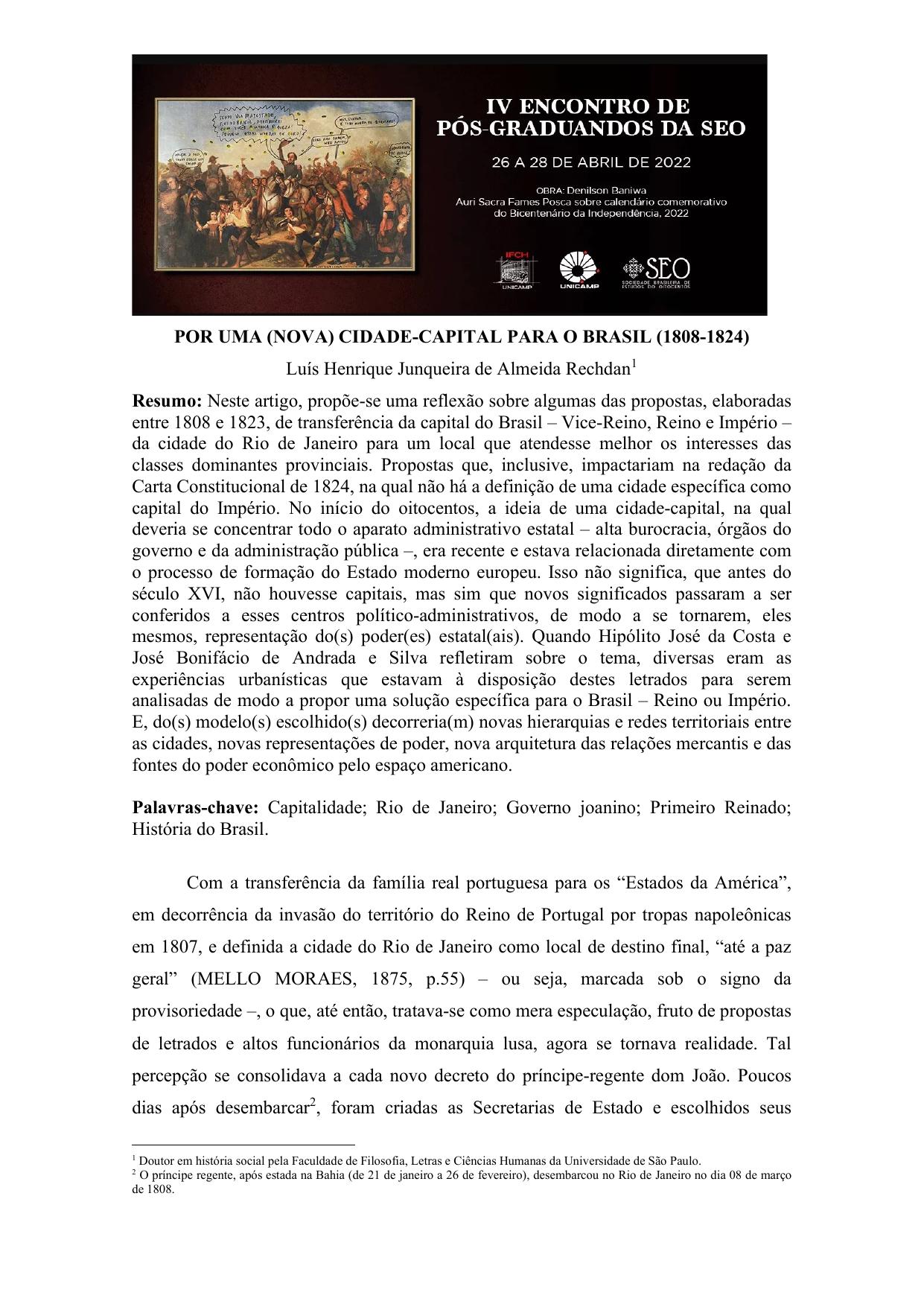
POR UMA (NOVA) CIDADE-CAPITAL PARA O BRASIL (1808-1824) PDF
2022·0.7528 MB·other
Most books are stored in the elastic cloud where traffic is expensive. For this reason, we have a limit on daily download.
Preview POR UMA (NOVA) CIDADE-CAPITAL PARA O BRASIL (1808-1824)
Description:
Rechdan proposes a reflection on some of the proposals, elaborated between 1808 and 1823, transfer of the capital of Brazil – Viceroyalty, Kingdom and Empire – from the city of Rio de Janeiro to a place that better served the interests of the provincial ruling classes. Proposals that would even have an impact on the wording of the Constitutional Charter of 1824, in which there is no definition of a specific city as capital of the Empire. At the beginning of the 19th century, the idea of a capital city, in which the entire state administrative apparatus should be concentrated - high bureaucracy, organs of the government and public administration – was recent and was directly related to the process of formation of the modern European state. This does not mean that before the sixteenth century, there were no capitals, but that new meanings came to be conferred on these political-administrative centers, so as to become, they themselves, representation of state power(ies). When Hipólito José da Costa and José Bonifácio de Andrada e Silva reflected on the topic, there were several urbanistic experiences that were available to these scholars to be analyzed in order to propose a specific solution for Brazil – Kingdom or Empire. And, from the model(s) chosen, new hierarchies and territorial networks between cities, new representations of power, new architecture of mercantile relations and sources of economic power across American space. Keywords: Capitality; Rio de Janeiro; Johannine government; First Reign; History of Brazil.
Rechdan proposes a reflection on some of the proposals, elaborated between 1808 and 1823, transfer of the capital of Brazil – Viceroyalty, Kingdom and Empire – from the city of Rio de Janeiro to a place that better served the interests of the provincial ruling classes. Proposals that would even have an impact on the wording of the Constitutional Charter of 1824, in which there is no definition of a specific city as capital of the Empire. At the beginning of the 19th century, the idea of a capital city, in which the entire state administrative apparatus should be concentrated - high bureaucracy, organs of the government and public administration – was recent and was directly related to the process of formation of the modern European state. This does not mean that before the sixteenth century, there were no capitals, but that new meanings came to be conferred on these political-administrative centers, so as to become, they themselves, representation of state power(ies). When Hipólito José da Costa and José Bonifácio de Andrada e Silva reflected on the topic, there were several urbanistic experiences that were available to these scholars to be analyzed in order to propose a specific solution for Brazil – Kingdom or Empire. And, from the model(s) chosen, new hierarchies and territorial networks between cities, new representations of power, new architecture of mercantile relations and sources of economic power across American space. Keywords: Capitality; Rio de Janeiro; Johannine government; First Reign; History of Brazil.
See more
The list of books you might like
Most books are stored in the elastic cloud where traffic is expensive. For this reason, we have a limit on daily download.
